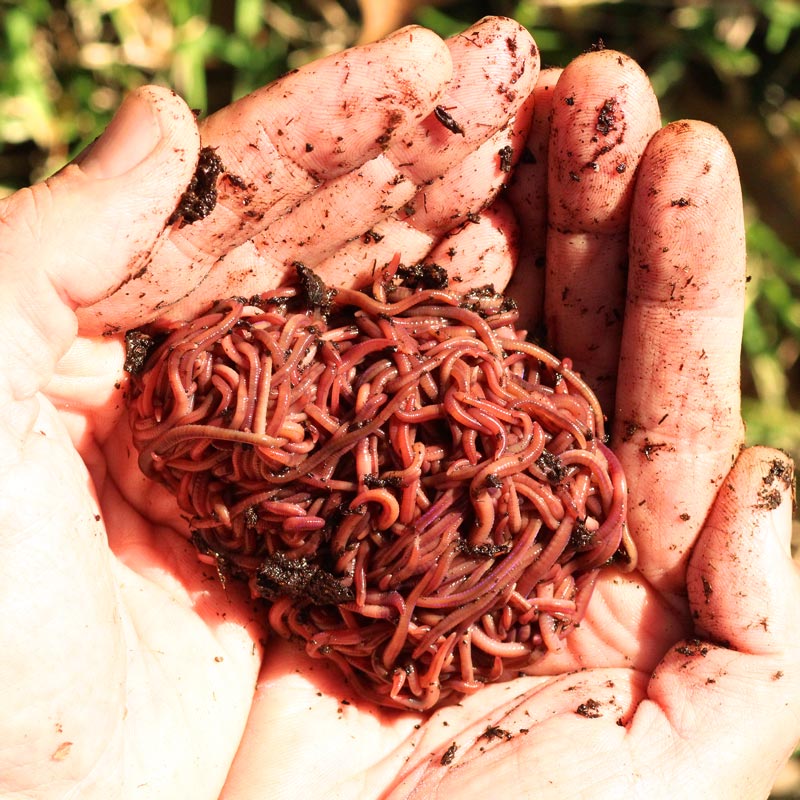Red Wiggler Worms - All-natural Option for Environment-friendly Composting
Red Wiggler Worms - All-natural Option for Environment-friendly Composting
Blog Article
Red Wiggler Worms Demystified: Unlocking the Tricks of Vermiculture for Greener Living and Nutrient-Rich Dirt
In the realm of lasting methods for enhancing dirt quality and advertising eco-conscious living, red wiggler worms play a crucial yet commonly forgotten role. These modest animals possess the exceptional ability to transform organic waste right into nutrient-rich castings that function as a potent all-natural plant food. By diving right into the world of vermiculture, one can uncover a variety of benefits that expand far past traditional composting approaches. Recognizing the ins and outs of caring for these worms, enhancing their environment, and harnessing their spreadings can cause a greener way of life and healthier soil for plants to thrive.
The Role of Red Wiggler Worms
Red Wiggler worms play an essential function in composting systems by effectively damaging down organic matter into nutrient-rich castings. These voracious eaters eat a variety of natural materials, such as kitchen scraps, yard waste, and paper items. As they feed, the worms' digestive procedures damage down the raw material into a penalty, dark, and nutrient-dense product recognized as worm castings or vermicompost.
The spreadings created by Red Wiggler worms are extremely valuable for soil health and plant development. They are rich in crucial nutrients like nitrogen, potassium, and phosphorus, which are crucial for sustaining healthy and balanced plant development. In addition, worm castings include beneficial microorganisms and enzymes that help enhance soil framework, increase water retention, and boost nutrient uptake by plants.
Benefits of Vermicomposting

It improves dirt structure, improves dirt aeration, and boosts dirt wetness retention. Vermicompost likewise enriches the soil with essential nutrients like nitrogen, phosphorus, and potassium, promoting plant development and overall soil fertility.
Furthermore, vermicomposting assistances sustainable gardening methods by offering a natural and chemical-free choice to artificial fertilizers. Red Wiggler Worms. This environmentally friendly technique not only enhances the soil however likewise helps decrease reliance on hazardous chemicals, promoting a greener and a lot more sustainable way of horticulture
Establishing a Worm Bin
When developing a worm bin for vermicomposting, appropriate arrangement is crucial to ensure the success of the composting procedure. The initial action in establishing up a worm container is selecting an appropriate container.
After including the bed linens, introduce the red wiggler worms to the bin. It is advised to begin with a handful of worms and slowly increase as they multiply. The worms ought to then be given with food scraps such as vegetables and fruit peels, coffee premises, and eggshells. It is vital to prevent adding meat, dairy, oily, or salty foods to stop bring in insects and producing undesirable smells.
Routinely keep track of the wetness levels and temperature in the worm bin to ensure optimal conditions for the worms. With correct configuration and maintenance, the worm bin will properly transform organic waste into nutrient-rich garden compost for your plants and yard.
Harvesting Worm Castings
To successfully accumulate nutrient-rich worm spreadings from your vermicomposting system, a methodical harvesting method is important. There are a few vital steps to comply with to make certain an effective procedure when it comes time to gather the worm spreadings. Stop including fresh food scraps to one side of the worm bin for a pair of weeks before gathering. This encourages the worms to migrate sideways with fresh bed linen and food, making it less complicated to scoop out the castings from the opposite.

Troubleshooting Common Issues
Determining and resolving common difficulties that might occur throughout the vermicomposting procedure is vital for keeping a effective and healthy and balanced worm bin. Adding excess food scraps can lead to an accumulation of moisture and read here level of acidity in the worm bin, possibly damaging the worms. Another issue is unpleasant smells originating from the worm bin.
Additionally, if the worm population is decreasing or the worms appear undesirable, maybe because of ecological stress factors such as severe temperature levels or pH degrees. Keeping track of these elements and making required adjustments is vital for the health of the worms. By fixing these common concerns immediately, vermicomposters can guarantee a smooth and effective vermicomposting procedure while maintaining a thriving worm population.

Verdict
In final thought, red wiggler worms play a crucial duty in vermiculture by damaging down organic issue right into nutrient-rich soil. Establishing up a worm bin is important for effective vermiculture, and gathering worm spreadings supplies useful compost for gardening.
As they feed, the worms' gastrointestinal procedures break down the natural issue right into a penalty, dark, and nutrient-dense material recognized as worm castings or vermicompost.
The castings created by try this Red Wiggler worms are extremely helpful for dirt health and plant growth. Adding excess food scraps can lead to a build-up of wetness and acidity in the worm container, possibly hurting the worms.In addition, if the worm population is decreasing or the worms appear unhealthy, it can be due to ecological stress factors such as severe temperatures or pH levels. Setting up a worm container is necessary for effective vermiculture, and collecting worm spreadings gives beneficial garden compost for gardening.
Report this page